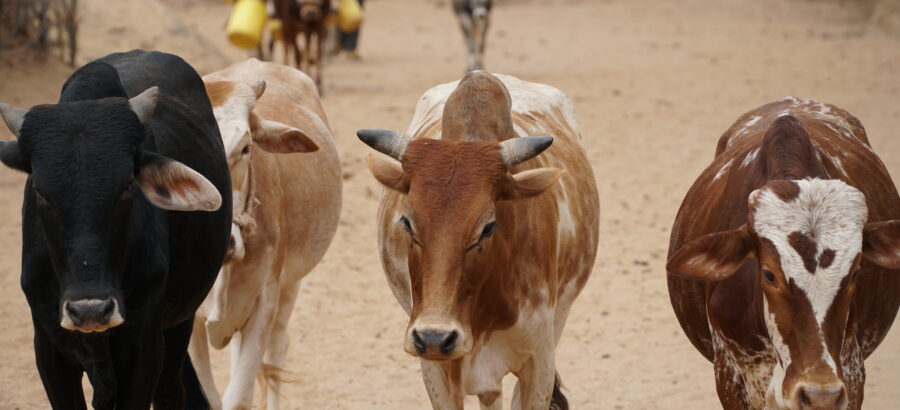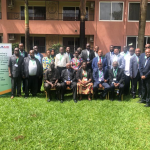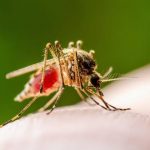The repercussions of Covid-19 outbreak are being felt more strongly with every passing day, and despite the unprecedented steps and cumulative efforts undertaken by governments, businesses, development partners, UN agencies, NGOs and individuals to stem the tide, the virus continues to rampage unchecked across the globe, causing loss of life and hitting national economies and businesses across manufacturing, telecommunication, productive, construction and transport sectors, and service industries. No aspect of life has been spared. In the IGAD region no sector has been spared including agriculture and the livestock sub-sector. Observations and informal reports show that impacts of Covid-19 could be even more severe in the arid and semi-arid areas (ASALs) as they were already suffering the scourge of massive Desert Locust (DL) invasion. The ASALs communities depend on livestock and livestock products for livelihoods and to link up with the national economy. Effects of Covid-19 and especially the measures rolled out to reduce its spread are weighing heavily on the sector. These effects are being exacerbated by widespread floods and the re-emergence of an even larger swam of DL.
Markets around the globe and in particular developing countries like those in the IGAD region are particularly susceptible and are taking huge hits from this pandemic, which is slowly increasing its infection rate in African continent. It is projected that Covid-19 will have significant effects on food and nutrition security including the ability to produce food, availability (quantity and quality), accessibility and affordability. In certain areas while food may be available, getting it to the market (accessibility and availability) will be difficult as the supply chains are disrupted, while in others the diminishing purchasing power (affordability) occasioned by massive lay-offs and near collapse of the informal sector will be a challenge. Average households in Sub-Sahara Africa (SSA) spend 50 percent of their expenditure on food purchase.
In Djibouti, Kenya, South Sudan and Sudan, curfews and restricted movement effected to control the spread of Covid-19 has had varied effects on the livestock sector including:
- Causing and/or exacerbating resource conflicts: The restrictions of movement has meant that in some areas the transhumant pastoralists have over stayed leading to overgrazing and conflict over water and grazing with local semi-sedentary agro-pastoralists. There is need to involve community leaders and elders to preach tolerance at this time of the Covid-19 pandemic, Desert Locust invasion and flooding.
- Disrupted input supply chains and service provision: The reduction of international flights and ships calling in IGAD Member State ports has reduced available drugs and chemicals which caused a rise in prices. Exclusive cargo flights are expensive and cannot support food commodities such as meat from an inefficient system in the region.
- Curtailing the movement of vehicles at night and long delays at border crossings has added to the cost of delivery which has been loaded on the delivered items including food stuffs and veterinary drugs and chemicals. Restricting movements of veterinary professionals in some countries has curtailed access to inputs and delivery of services. Furthermore, restricted movements including night curfews are hindering farmers’ access to input and output markets, limiting productive capacities and forbidding retailing available produce. Farmers and pastoralists are already being exploited since farm gate prices for short shelf-life livestock products such as milk and poultry products have plummeted leaving them with milk, broiler chicken and eggs due to low demand. Crop farmers growing perishable products such as vegetables and fruits have also been on the receiving end due to reduced demand. Price of cereals such as beans, sorghum, maize, millet among others has increased because of high transport costs since trucks have no return cargo. Governments need to consider lowering the VAT levels on processed food stuffs, veterinary drugs and chemicals to maintain the costs of inputs at pre-Covid19 levels. In addition, it would be prudent for Kenya-Uganda-Rwanda to discuss and agree on expedited modalities of screening and clearing trucks at border crossing to reduce turnaround time for trucks. It is proposed that Member States which have not categorized veterinary services as essential do so in order to facilitate their movement to provide inputs and services.
- Market closure: To adhere to social distancing rules, most livestock markets have either closed or are operating at very low capacity. This has severely affected the informal businesses that thrived in livestock markets including eateries, lodgings, taxi services, vehicle repair, provision of water, loading and offloading and other basic services. The closure of markets has affected local demand for livestock which has caused a slump in livestock farm gate prices leading to price exploitation of pastoralists who depend on local aggregators and very few secondary market buyers. For example, price of cattle, sheep and goats in Samburu County, Kenya dropped by 40-60% in April 2020 compared to same period in 2019 because of very low demand. This decline in value of livestock has come at a time when the cost of household food basket (cereals, cooking oil, salt and tea leaves) has increased which means that the pastoralists have to sell more animals to buy the same amount of food. In Juba there has been a 50% rise in prices of essential commodities such as fuel, rice, maize and sorghum flours, beans, oil, soap, salt, vegetable and fruit. It is proposed that vulnerable pastoralists be included in the on-going government funded social safety nets including cash transfers and cash for public works to improve liquidity at community level.
- Declining slaughter in major urban areas – a rapid survey by ICPALD showed that most major slaughter facilities in urban areas were working at 40-60% capacity while some export slaughterhouses (Neema and Farmers Choice) were working at between 30-40% capacities respectively. This is due to falling effective demand because of slowdown in national economies, rising unemployment, curtailed informal sector employment/activities, closure of hotels, bars and restaurants, closure of learning institutions, collapse of tourism (domestic and international), closure of airports, steamer and rail transport and increased cost of transporting animals for slaughter among others. For example, in 2018, the contribution of travel and tourism to GDP was 8.8 % in Kenya, 9.4% Ethiopia and 7.7% in Uganda, all of which is lost due to restricted local and international movements between and within countries. Should the Covid-19 effects drag longer the reduced demand of slaughter stock may depress farm gate prices further which will adversely affect pastoralists and agro-pastoralists.
- Declining Remittances: The poor national economic performance world over has reduced remittances from member countries’ citizens in diaspora and from urban areas which has reduced liquidity in the communities in the arid and semi-arid areas.
It has, however, not been all doom and gloom as Somalia and Sudan have had a windfall as countries in the Middle East and North Africa (MENA) countries including KSA, Bahrain, Qatar, Oman, Egypt, Libya Kuwait among others have placed enhanced orders of livestock from Somalia and Sudan since the outbreak of the pandemic. This is partly due to restricted importation from Europe, the Americas and Asian countries as countries struggle to curb the spread of Covid-19. Livestock demand to MENA countries increased approximately 4 times compared to 2019 according to Jazeera quarantine. KSA’s order in 30 days reached 600,000 of sheep and goats and 100,000 of Camel. Oman in one week requested 30,000 heads of livestock, Egypt requested 3,600 camels for May 2020. Other orders for camels were from Bangladesh, Libya and Kuwait.
On the other hand, the price of household essentials and food stuff has increased due to high delivery cost as a result of restricted international travels brought about by corona virus pandemic.
Recommendations/Policy Directions
- Governments in the region are currently rolling out several social safety nets targeting needy families in densely populated urban areas. It is proposed that pastoralists and agro-pastoralists are classified as vulnerable and are targeted with public funded social safety nets including cash transfers, cash for public works and later livestock insurance/micro-insurance.
- Livestock production and marketing are key elements of food and nutrition security in arid and semi-arid areas of the IGAD region as they provide food and much needed liquidity. It is therefore important that veterinary services are re-categorized as essential services where they have not been and all efforts are made to keep markets and supply chains operational while adhering to the Covid-19 management guidelines.
- Public and private sector need to work at establishing e-trading platforms that would allow traders and aggregators in primary markets to interact virtually with buyers and transporters to keep the markets open and guarantee social distancing. It is also an opportune time for the stakeholders consider contract livestock production and marketing as this would guarantee supply and market and serve to stabilize prices.
- Member States should encourage investments in standard slaughter facilities in areas of production from where they will slaughter and supply chilled/frozen carcasses to urban areas and institutions and later export markets.
- Support vaccination and deworming – currently there are outbreaks of FMD, LSD, PPR and concern of RFV outbreak due to heavy rains and floods, it is proposed that Member States and partners consider funding vaccinations against priority diseases and routine vaccination to ensure that most animals survive the DL and Flooding.






